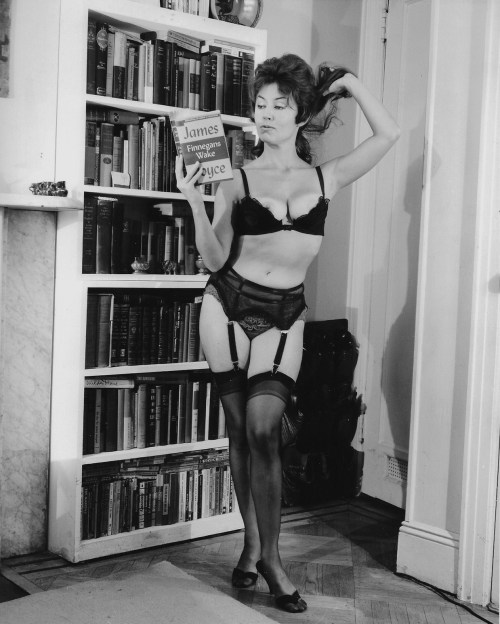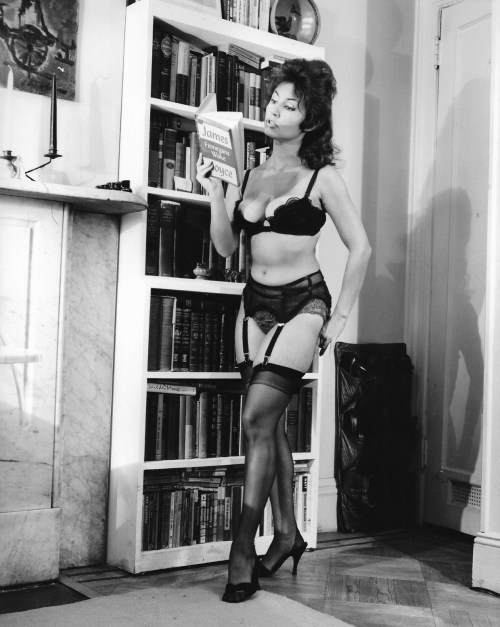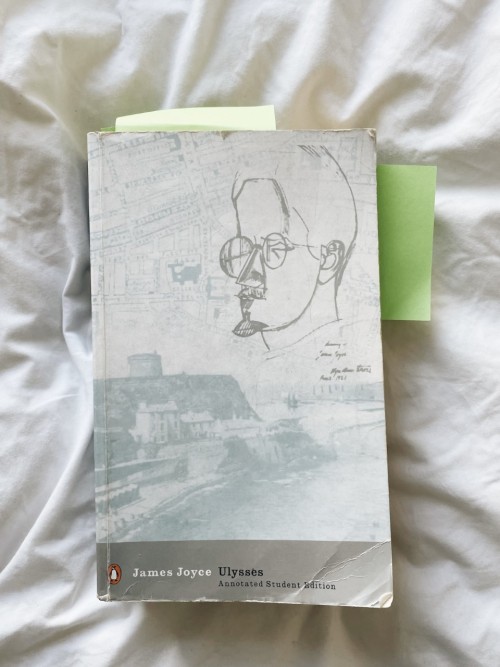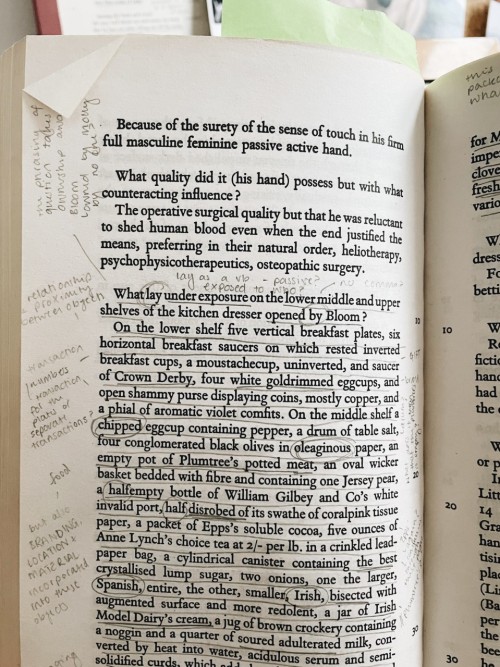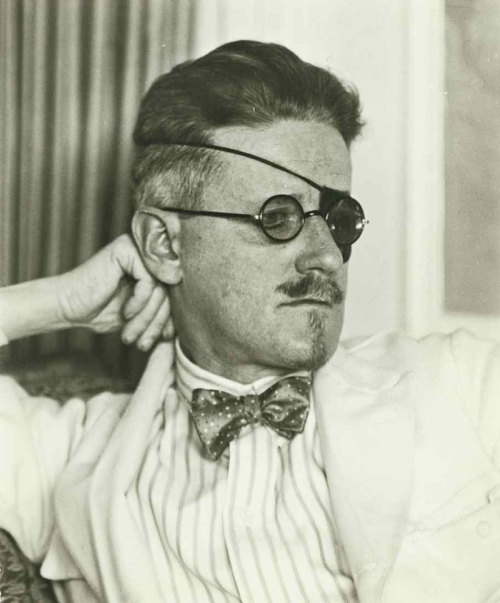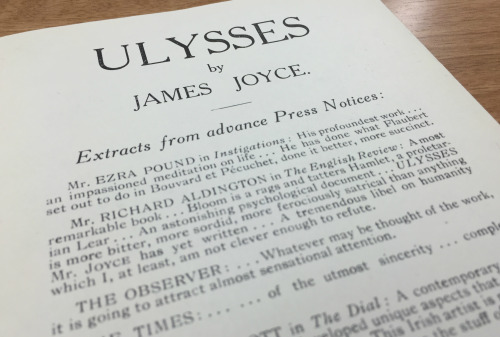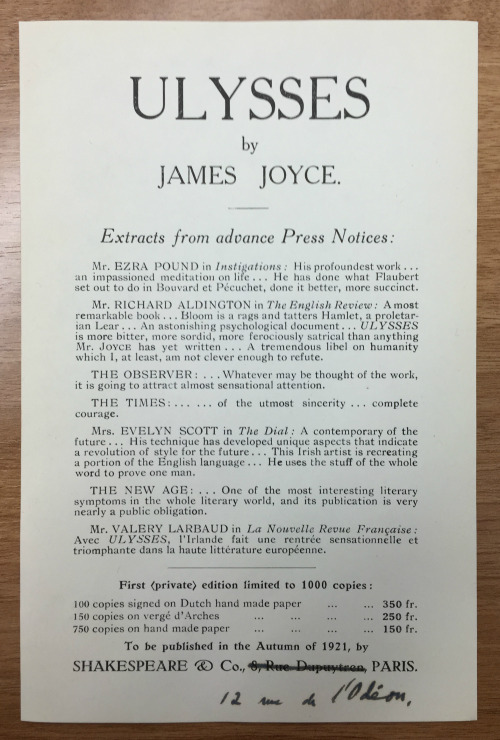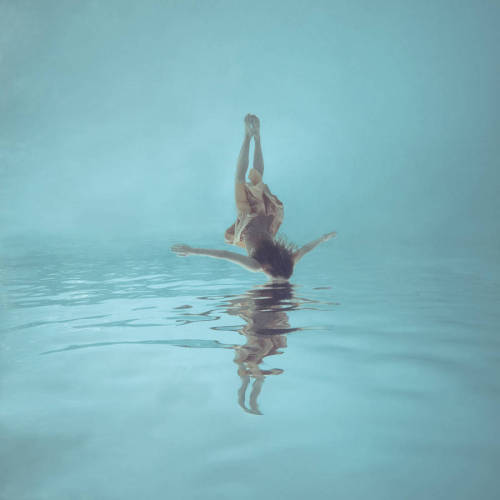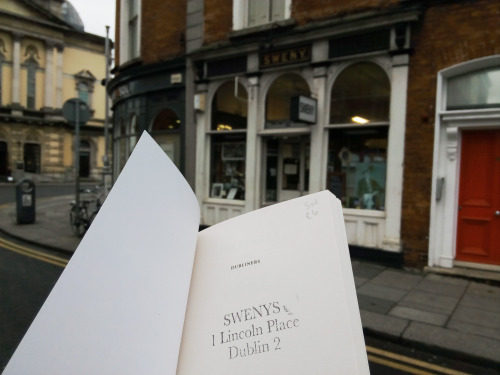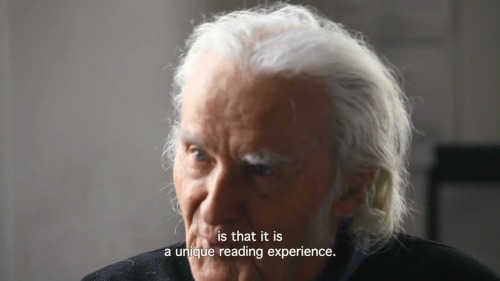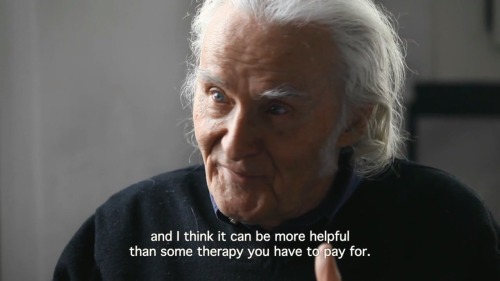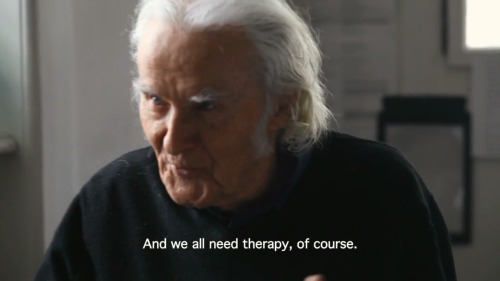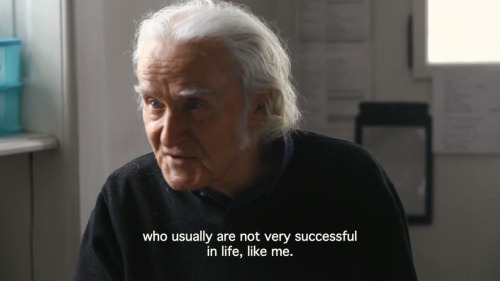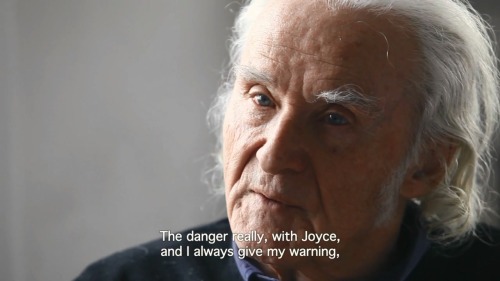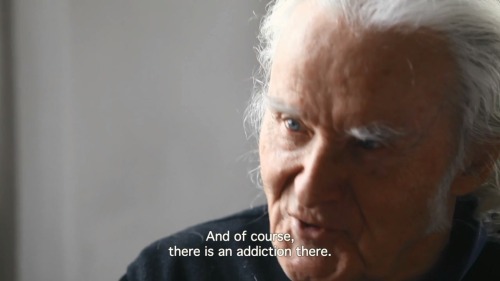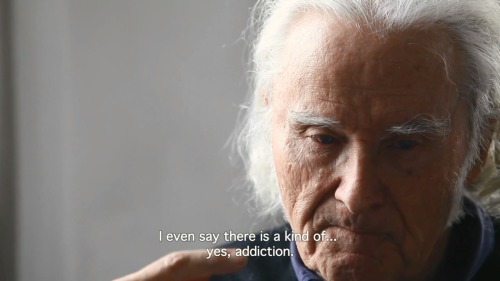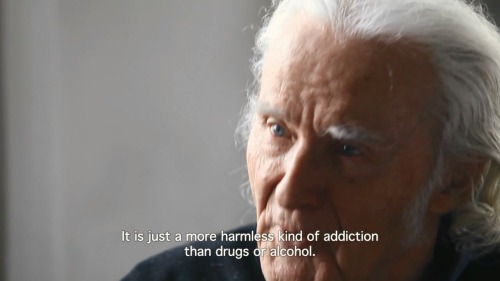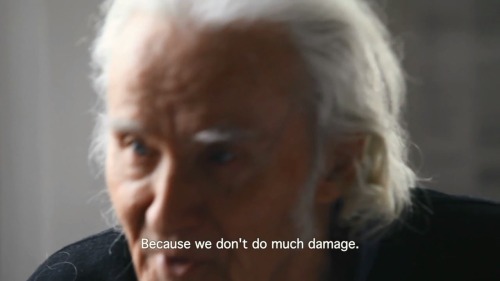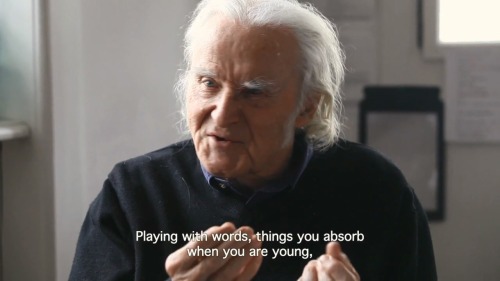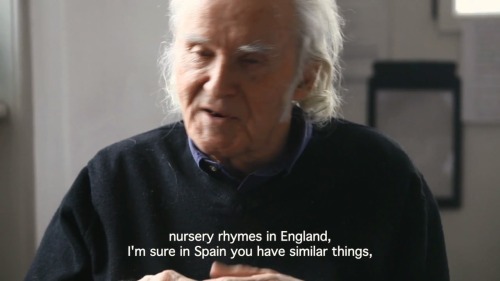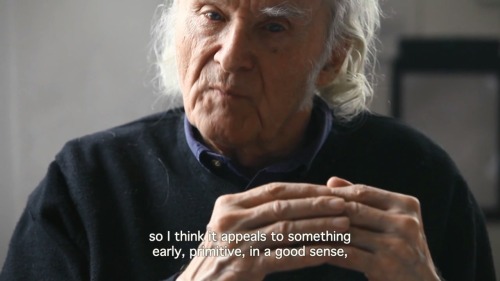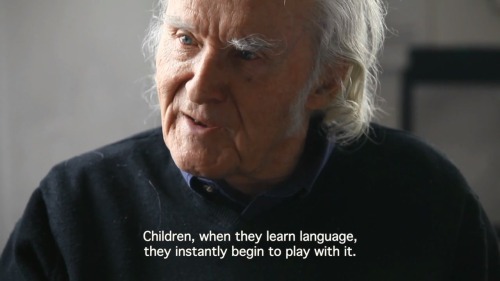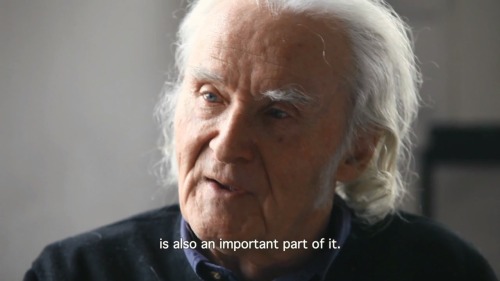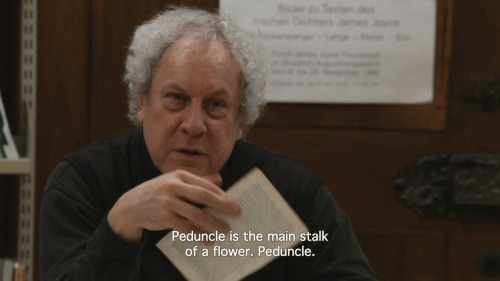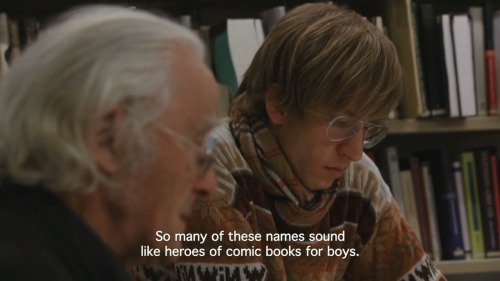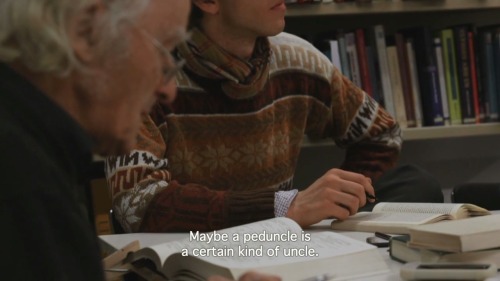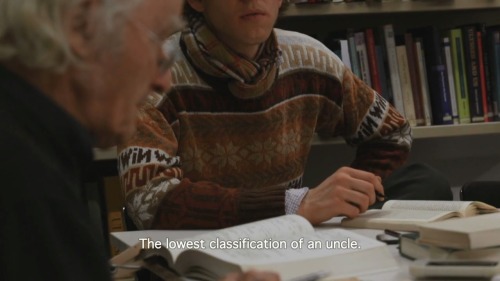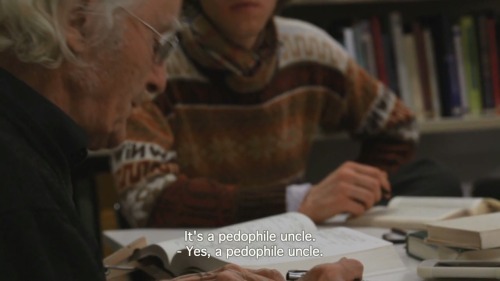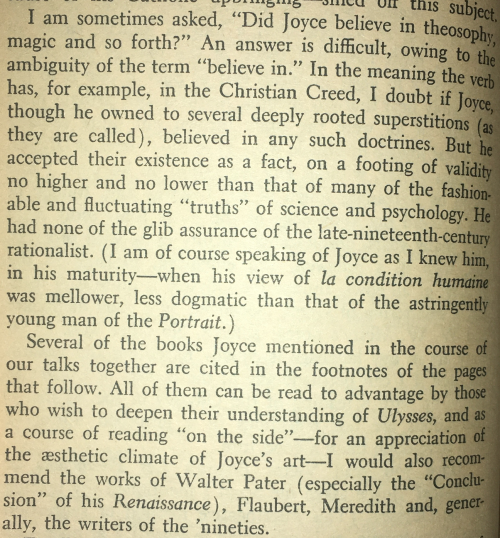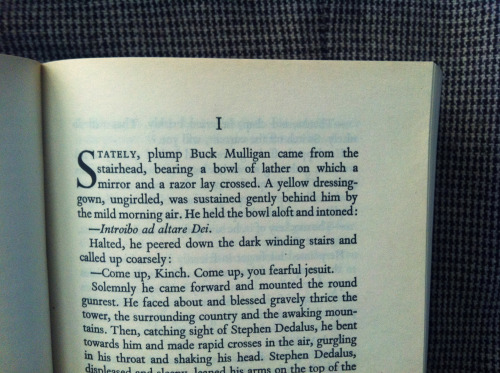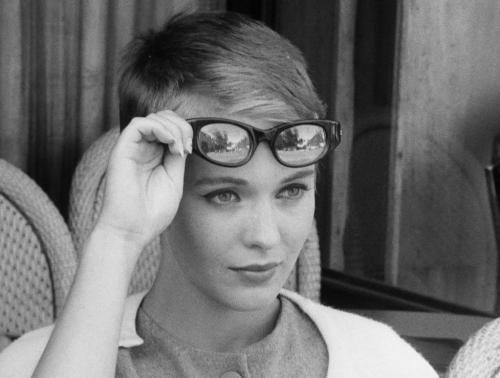#james joyce
“The moon. Her nocturnal predominance: her luminary reflection: her potency over effluent & refluent waters: her power to enamour, to mortify, to invest with beauty, to render insane, to incite: the tranquil inscrutability of her visage: her dominant resplendent propinquity: her omens of tempest & of calm: the stimulation of her light, her motion & her presence: the admonition of her craters, her arid seas, her splendour, when visible: her attraction, when invisible.” ― James Joyce, Ulysses
still coming out of the other side of my last essay - an analysis of the objects in ulysses through the lens of this one bit of furniture in the ithaca episode. it was sohard but very rewarding, as studying ulysses always is, and it was kind of special to write this essay across the week of the hundredth anniversary of its publication. now to get myself to dublin for bloomsday!
Post link
by James Joyce
What’s it about?
It’s about a man walking around Dublin and all the things he sees and thinks about. The whole book takes place over the course of one day. It might be the first book which takes longer to read than the events it portrays.
I’ve heard … things. Dark mutterings.
Yes. It’s a famously “difficult” read. One entire chapter is a single sentence. There are lots of chunks of text that seem to be sound effects, and it often transliterates the play-by-play of someone’s interior monologue. A lot of the time it’s less something you read and more something you allow happen to you.
That sounds awful. I’m out.
No! I don’t want to give you the wrong idea here, so I should probably mention that it’s very funny. As with Lolita, it’s full of word games, puns, straight-up jokes with proper punchlines, and complicated language puzzles for you to solve which most people won’t even notice.
When asked for a summary of this book, Joyce himself said, “I’ve put in so many enigmas and puzzles that it will keep the professors busy for centuries arguing over what I meant”. It sounds like a pretentious intellectual boast, but when you read the book you will see that the quote is better understood as the frank admission of some next-level trolling.
InUlysses, Joyce trolls everyone. He trolls his friends, his enemies, his family,Irish people in general and some specific Irish people. There’s probably some part of the book that trolls you. Like Beckett’s advanced trolling operations, he gets around to everyone eventually.
Basically, if you’ve read Game of Thrones and you can’t handle a book that gets around to destroying everyone at some point, you should present yourself to the relevant authorities at first light.
What should I say to make people think I’ve read it?
[Believe it or not]: “I never managed to get through the whole thing.”
What should I avoid saying when trying to convince people I’ve read it?
“The Jews again, of course. Yeah.”
Should I actually read it?
You’re not going to make it all the way through, but you should definitely try. The secret to Ulysses is that it doesn’t really matter if you finish it or not.
“They lived and laughed and loved and left.” James Joyce
(2 February 1882 – 13 January 1941)
Post link
We’ve probably all done this before. While out and about, perhaps while traveling or shopping, we lay a scrap of paper inside a book. Maybe it’s a receipt for the book’s purchase, or perhaps it’s a plane ticket. Whatever it is, we probably don’t give it much thought at the time. But decades later, or even centuries, those scraps of paper can prove more fascinating than the host book itself.
Not to discount Robert McAlmon’s first book, Explorations, but what we found laid inside our 1921 first edition was far more interesting: an early advertisement for Ulysses (as it happens, McAlmon edited Joyce’s Ulyssesmanuscript).
Early press for Ulysses more commonly manifests as a four-page prospectus that included a detachable order form. There were two versions of this that indicated Ulysses would be published in “Autumn of 1921”—just like our single-leaf advertisement (the book was finally published in 1922). One of these prospectuses bore the earlier address of Shakespeare & Co., 8 rue Dupuytren. The second of these prospectuses bore the new address, 12 rue de l’Odéon. Our advertisement here has the earlier address, though corrected by hand (someone please tell us if it’s Sylvia Beach’s hand!) to reflect the new rue de l’Odéon address. So with a bit of sleuthing and some help from The Poetry Collection at the University at Buffalo, we can confidently suggest that this rare Ulysses ad was printed about the same time as the first prospectus.
As you might expect, printed ephemera aren’t known for their survival skills. WorldCat locates two other copies of this particular ad, one each at Yale and Cornell. Surely there are others out there, safely filed away in archival collections—or perhaps just languishing inside an old book, a forgotten memento of a visit to a Paris bookstore in 1921.
~Patrick
This Provenance Project guest post was written by Patrick Olson, Rare Books Librarian at MSU Special Collections. Patrick joined Michigan State University in 2014, having previously held special collections positions at the University of Iowa, MIT, and the University of Illinois, where he also earned his MLIS. Prior to becoming a librarian, he spent four years working in the rare book trade.
Post link
Our Book Bracket finalists prepare for battle in not dissimilar ways: one walks around Dublin hating himself, the other crawls around his house being hated. And both are ultimately transformed.
Throw your weight behind Joyce or Kafka here! The winning title—and winning submitted bracket—will be announced on Monday afternoon.
Post link
VERY controversial opinion of me to have as an english major, i know, but i can’t stand james joyce’s ulysses. why is this zillion-word-long garbage heap of pretentious nonsense hailed as one of the greatest novels in history…. truly i will never understand it. i don’t even think it has much merit as a piece of ‘transgressive linguistic progress’ or whatever because there’s no point in finding new ways to use words if said new ways make zero sense. joyce has shoved so many asinine, barely-relevant allusions into the nonexistent “plot” that it’s utterly unreadable to anyone except himself, and once you DO parse through it enough to vaguely understand what’s going on, you realize it’s literally just about Some Guy going about his day in dublin and joyce has essentially promised depth and Deep Meaning where there is none. my theory is that everyone who agrees that ulysses is great is only saying so because they didn’t understand a single word of it and desperately want to maintain their facade of intelligence.
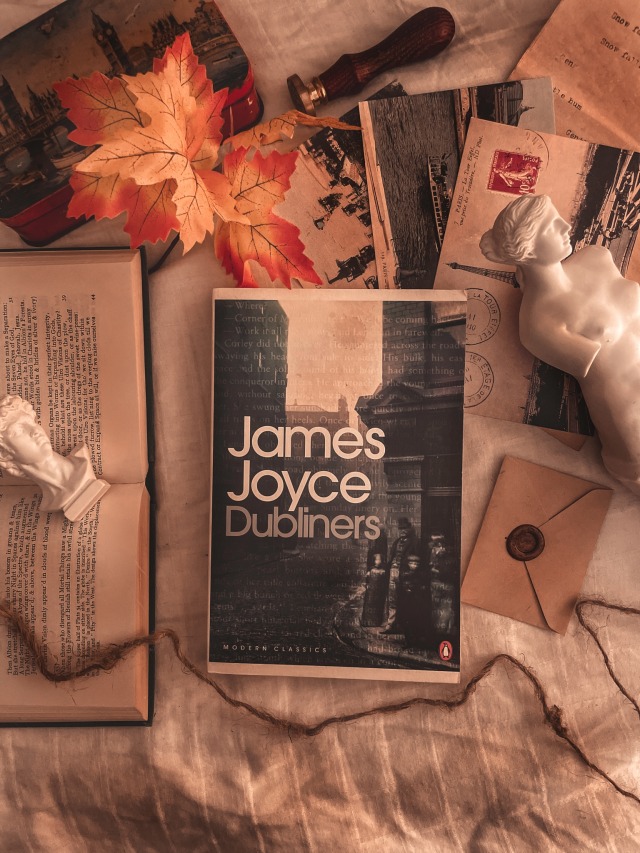
; .
,
When you’re angry at the characters, the story is well-written. When you’re angry at the writers, it is not.
the presumption here is that audiences can tell the difference.
presuming they’re not children, the audience can usually tell. ex: when a character does something you don’t like - but it feels like something the character would do - you get mad at the character. when a character does something you don’t like - and the history of that character makes it unbelievable that the character would do that thing - you get mad at the writers.
^^^^^^^^^^^THIS
The fact that you’re aware of the writer’s existence at all should be a clue. The writer should be invisible to you if they’ve done their job properly.
“The artist, like the God of creation, remains within or behind or beyond … refined out of existence, indifferent, paring his fingernails.” –James Joyce, A Portrait of the Artist as a Young Man
BOOK STARTERS VOL.44 DUBLINERS JAMES JOYCE
- ❛ Yet your name is like a summons to all my foolish blood. ❜
- ❛ Better pass boldly into that other world, in the full glory of some passion, than fade and wither dismally with age. ❜
- ❛ You live a short distance from your body. ❜
- ❛ Too excited to be genuinely happy. ❜
- ❛ I want real adventures to happen to myself. ❜
- ❛ Gazing up into the darkness I see myself as a creature driven and derided by vanity; and my eyes burn with anguish and anger. ❜
- ❛ In your eyes I will ascent to an angelical stature. ❜
- ❛ We cannot give ourselves: we are our own. ❜
- ❛ No one would think he’d make such a beautiful corpse. ❜
- ❛ Every bond, is a bond to sorrow. ❜
- ❛ There is no doubt about it: if you want to succeed you have to go away. ❜
- ❛ It fills me with fear, and yet I long to be nearer to it. ❜
- ❛ I wish you and yours every joy in life, and tons of money, and may you never die till I shoot you. ❜
- ❛ There’s no friends like the old friends. ❜
- ❛ I feel that I have been outcast from life’s feast. ❜
- ❛ Why is it that words like these seem to me so dull and cold? Is it because there is no word tender enough to be your name? ❜
- ❛ I remember well your eyes, the touch of your hand and my delirium. ❜
- ❛ My life will be lonely too until I, too, die, cease to exist, become a memory - if anyone remembers me. ❜
- ❛ Drew the blankets over my head and tried to think of Christmas. ❜
- ❛ In my heart I always despised him a little. ❜
- ❛ All the seas of the world tumble about my heart. You are drawing me into them: you will drown me. ❜
- ❛ Then I remembered what I had been waiting for. ❜
- ❛ Every place is immoral. ❜
- ❛ If it’s not your business it’s my business and I mean to see to it. ❜
- ❛ I won’t be fooled. ❜
- ❛ I could hear nothing: the night was perfectly silent. I listened again: perfectly silent. ❜
- ❛ After three weeks she found a wife’s life irksome and, later on, when she was beginning to find it unbearable, she had become a mother. ❜
- ❛ There was a heavy odour in the room – the flowers. ❜
- ❛ Real adventures do not happen to people who remain at home: they must be sought abroad. ❜
- ❛ My body is like a harp and your words and gestures are like fingers running upon the wires. ❜
MOVIE STARTERS VOL.15 THE MATRIX THE WACHOWSKI SISTERS
- ❛ I’d like to share a revelation that I’ve had during my time here. ❜
- ❛ Human beings are a disease, a cancer of this planet. ❜
- ❛ This is your last chance. After this, there is no turning back. ❜
- ❛ What are you trying to tell me? That I can dodge bullets? ❜
- ❛ I know you’re out there. I can feel you now. I know that you’re afraid… you’re afraid of me. ❜
- ❛ I’m going to show them a world without you. A world without rules and controls, without borders or boundaries. A world where anything is possible. ❜
- ❛ What is real? How do you define ‘real’? If you’re talking about what you can feel, what you can smell, what you can taste and see, then 'real’ is simply electrical signals interpreted by your brain. ❜
- ❛ Sooner or later you’re going to realise just as I did that there’s a difference between knowing the path and walking the path. ❜
- ❛ I imagine that right now, you’re feeling a bit like Alice. Hmm? Tumbling down the rabbit hole? ❜
- ❛ I see it in your eyes. You have the look of a man who accepts what he sees because he is expecting to wake up. ❜
- ❛ I don’t like the idea that I’m not in control of my life. ❜
- ❛ Let me tell you why you’re here. You’re here because you know something. What you know you can’t explain, but you feel it. You’ve felt it your entire life. ❜
- ❛ You have to let it all go. Fear, doubt, and disbelief. Free your mind. ❜
- ❛ To deny our own impulses is to deny the very thing that makes us human. ❜
- ❛ After nine years, you know what I realise? Ignorance is bliss. ❜
- ❛ Have you ever had a dream that you were so sure was real? What if you were unable to wake from that dream? How would you know the difference between the dream world and the real world? ❜
- ❛ As a species, human beings define their reality through suffering and misery. ❜
- ❛ You’re cuter than I thought. I can see why she likes you. ❜
- ❛ I’m trying to free your mind. But I can only show you the door. You’re the one that has to walk through it. ❜
- ❛ Never send a human to do a machine’s job. ❜
- ❛ What are you waiting for? You’re faster than this. Don’t think you are, know you are. ❜
- ❛ Come on. Stop trying to hit me and hit me. ❜
- ❛ So what do you need? Besides a miracle. ❜
- ❛ The body cannot live without the mind. ❜
- ❛ Unfortunately, no one can be told what it is. You have to see it for yourself. ❜
- ❛ That is the sound of inevitability… It is the sound of your death. ❜
- ❛ You’re looking for it. I know because I was once looking for the same thing. ❜
- ❛ The answer is out there, and it’s looking for you, and it will find you if you want it to. ❜
- ❛ Do you think that’s air you’re breathing now? ❜
- ❛ Well, that sounds like a pretty good deal. But I think I may have a better one. How about, I give you the finger? ❜
“I find myself really willing to declare I never finished a single book by Borges, but I’m much enamored of the idea of such an affiliation. I really can’t claim to having ever read a word of Ulysses, nor would I want to, and yet I feel myself in certain ways the result of my ideaof Joyce. I think Harold Bloom would claim that strong writers only read themselves, and that it is your misreading of your precursors that counts. So it is my misapprehension of Joyce, of Beckett. I can’t deny that for three or four years of my life I virtually saw my walk as consonant with the walk I imagined James Joyce had. But I was probably more taught by Joyce’s letters than I was by his prose fiction.”
-Gordon Lish, from Conversations with Gordon Lish[eds. David WintersandJason Lucarelli]
Final chapter in James Joyce’sUlyssesfromImagining Ulysses(2004)dir. Neasa Hardiman,Dearbhla Walsh,Shimmy Marcus
The version of this magnificent, awful essay collected in The Modernist Papers (2007) omits the dedication. I wonder why. In general, I find Jameson both loathsome and impressive, loathsomely impressive, impressively loathsome. How both? Because of the inimitable frisson he creates by casually endorsing not just a civil rights movement but what was in effect a terrorist paramilitary campaign, which he conflates in true Leninist style with the will of “the people”—this in an essay about a quasi-pacifist skeptical of nationalism no less—before calmly assuming his customary perch on the peak of absolute knowledge from which all culture can be surveyed and measured.
Anyway, my main interest in the essay is his assessment of Ulysses’s class character:
Now for a certain conservative thought, and for that heroic fascism of the 1920s for which the so-called ‘masses’ and their standardised city life had become the very symbol of everything degraded about modern life, gossip— Heidegger will call it ‘das Gerede’—is stigmatised as the very language of inauthenticity, of that empty and stereotypical talking pour rien dire to which these ideologues oppose the supremely private and individual speech of the death anxiety or the heroic choice. But Joyce—a radical neither in the left-wing nor the reactionary sense—was at least a populist and a plebeian. ‘I don’t know why the communists don’t like me,’ he complained once, ‘I’ve never written about anything but common people.’ Indeed, from the class perspective, Joyce had no more talent for or interest in the representation of aristocrats than Dickens; and no more experience with working-class people or with peasants than Balzac (Beckett is indeed a far sounder guide to the Irish countryside or rural slum than the essentially urban Joyce). In class terms, then, Joyce’s characters are all resolutely petty-bourgeois: what gives this apparent limitation its representative value and its strength is the colonial situation itself. Whatever his hostility to Irish cultural nationalism, Joyce’s is the epic of the metropolis under imperialism, in which the development of bourgeoisie and proletariat alike is stunted to the benefit of a national petty-bourgeoisie: indeed, precisely these rigid constraints imposed by imperialism on the development of human energies account for the symbolic displacement and flowering of the latter in eloquence, rhetoric and oratorical language of all kinds; symbolic practices not particularly essential either to businessmen or to working classes, but highly prized in precapitalist societies and preserved, as in a time capsule, in Ulysses itself. And this is the moment to rectify our previous account of the city and to observe that if Ulysses is also for us the classical, the supreme representation of something like the Platonic idea of city life, this is also partly due to the fact that Dublin is not exactly the full-blown capitalist metropolis, but like the Paris of Flaubert, still regressive, still distantly akin to the village, still un- or under-developed enough to be representable, thanks to the domination of its foreign masters.
This is clever, very, but then if colonialism plays the role he here attributes to it, what was Dickens’s excuse for also creating petit-bourgeois utopias in the heart of Victorian London (Orwell on Dickens: “the strange, empty dream of the eighteenth- and nineteenth-century middle bourgeoisie…a dream of complete idleness”)? What, for that matter, is the class character of The Waste Land, with its clerks, typists, and (Phoenician) merchants? I mostly got this from my own dissertation advisor, and she mostly got it from Rita Felski, but I want to run with it to the end of the line: modern literature is the paradise of the lower middle class.
Post link
—Stuart Gilbert, James Joyce’s Ulysses: A Study
A sequel to yesterday’s post: maybe it took another Irishman to do it; maybe Ulysses after all is the Bible of occultic Nietzschean Catholicism. Note that Gilbert leaves Wilde among the nameless “writers of the ’nineties,” whereas I tend to think he is the key that picks the Joycean lock. Then again, I confess to not knowing Meredith except as a poet, to not having gone beyond Modern Love, so perhaps there’s something there.
As for theosophy—and the connection more broadly between modernism and magic—this is a book that should be better known (you can get it for free on libgen, you didn’t hear it from me):
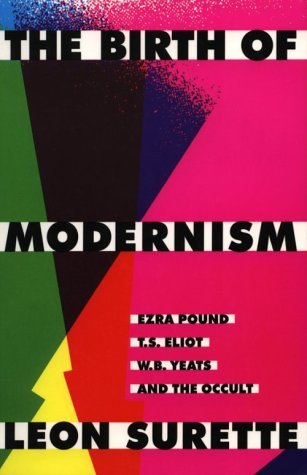
I read it in graduate school but wasn’t then able to integrate it into my thesis. I’m still pondering the implications. I myself know theosophy mostly by reputation.
I see with some amusement that an eminent theosophical book Gilbert cites among Joyce’s sources is Sinnett’s Esoteric Buddhism: this is available on Amazon in a version edited by probably the most fascinating and original of the right-wing YouTubers, the occultist, libertarian, and Trump supporter Tarl Warwick AKA Styxhexenhammer666. Would would Joyce make of that?
Post link
Teaching aid for “Ulysses”: the schooner “Rosevean”
Teaching aid for “Ulysses”: the schooner “Rosevean”
Walking along the beach at the end of the Proteus episode, Stephen sees “Moving through the air high spars of a threemaster, her sails brailed up on the crosstrees, homing, upstream, silently moving, a silent ship” (3.503-05). That night, in Eumaeus, Stephen and Bloom meet one of the threemaster’s sailors, able-bodied seaman D. B. Murphy, who tells them, “We come up this morning eleven o’clock.…
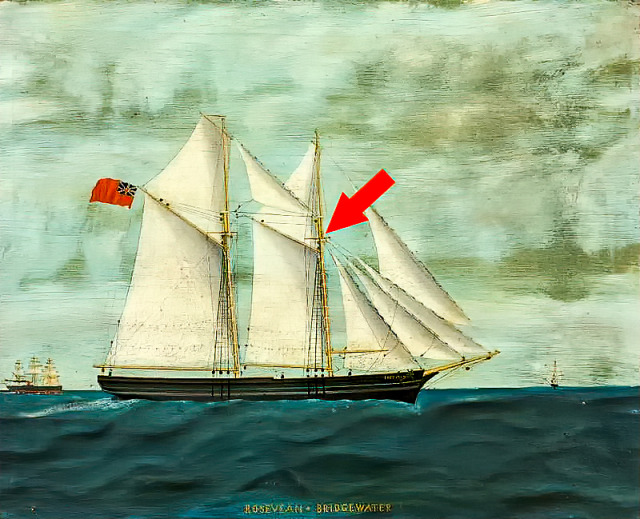
À bout de souffle (Breathless) - Jean-Luc Godard (1960)
I just started posting reviews and I noticed that if someone based my website on the first two films I reviewed they’d think I was super super lame, so I thought I’d pull up one of my favourite films of all time, Jean-Luc Godard’s classic.
Breathless is one of the greatest films ever made in my opinion.
The character development is so different than other films. Godard doesn’t use dialogue and character history to make us feel something for the character, he just let’s us watch them; let’s us observe them when they’re alone.
Belmondo’s character even breaks the fourth wall and speaks to the audience, and it actually works really well. He’s a bit of a douchebag but I didn’t even mind, I still like him.
Godard breaks all of the conventions set for him by filmmakers at the time, and questions ’whyis the camera always supposed to be fixed on their face when they speak?’ and films however he feels will best suit his film. It’s like James Joyce’s use of punctuation and grammar towards the end of Ulysses. Godard was such a genius that he couldn’t even be subordinated by film conventions.
The scenes filmed in the public really were filmed in the public. As in, the supposed extras who are in the background are all looking directly into the camera, some stopping, pointing and looking at Belmondo and Seberg act. But it just adds a new, amazing dimension. Belmondo himself thought this film was so terrible, but it’s the fact that it’s different that makes it so fresh and calming.
I can’t even put into words how perfect this film is. Godard does not need a good plot line, he does not need film sets and perfect lighting and he does not need to follow the ‘rules’ of film. All he needs is a camera and to question why film had such conventions anyway.
There are some serious literary and artistic allusions, that were fun to pick up on too. Godard knows that the film has so many things that would be considered wrong and bad at the time, but he sees film outsider the boundaries of just being the same story with better and better sets. He is truly innovative. He focuses on so much over the plot that the film has such a unique dimension.
Entertaining,different (which I can never stress enough as being the key to a good film) and refreshing. Also you feel pretty damn cool watching it.
Five stars/Five
Post link

